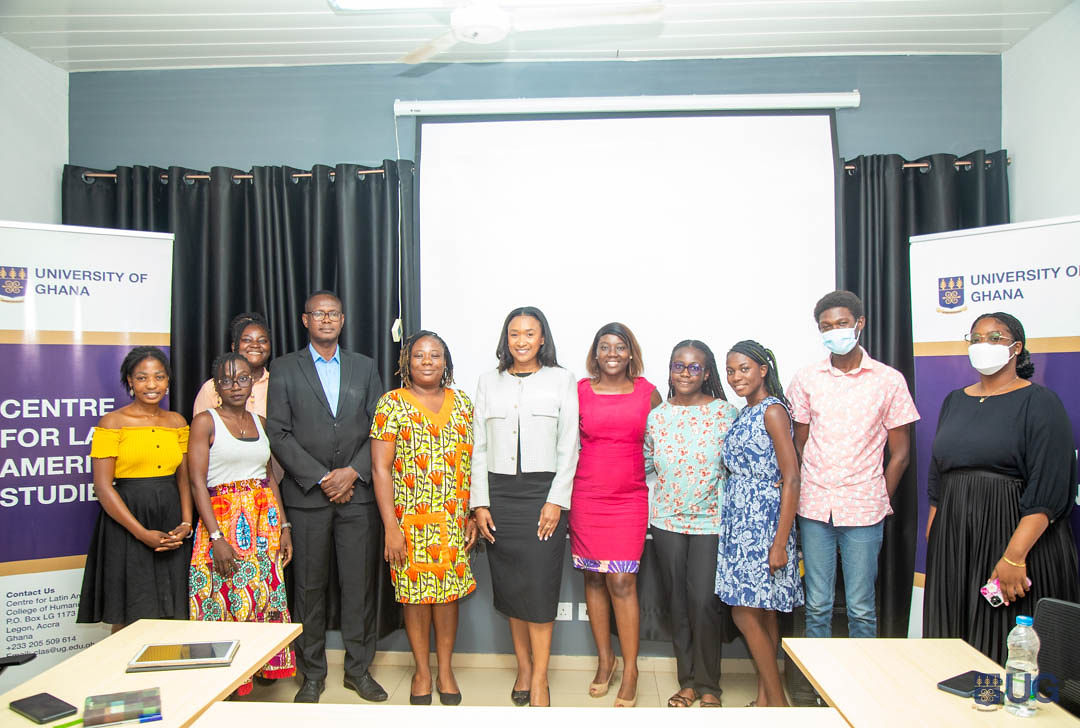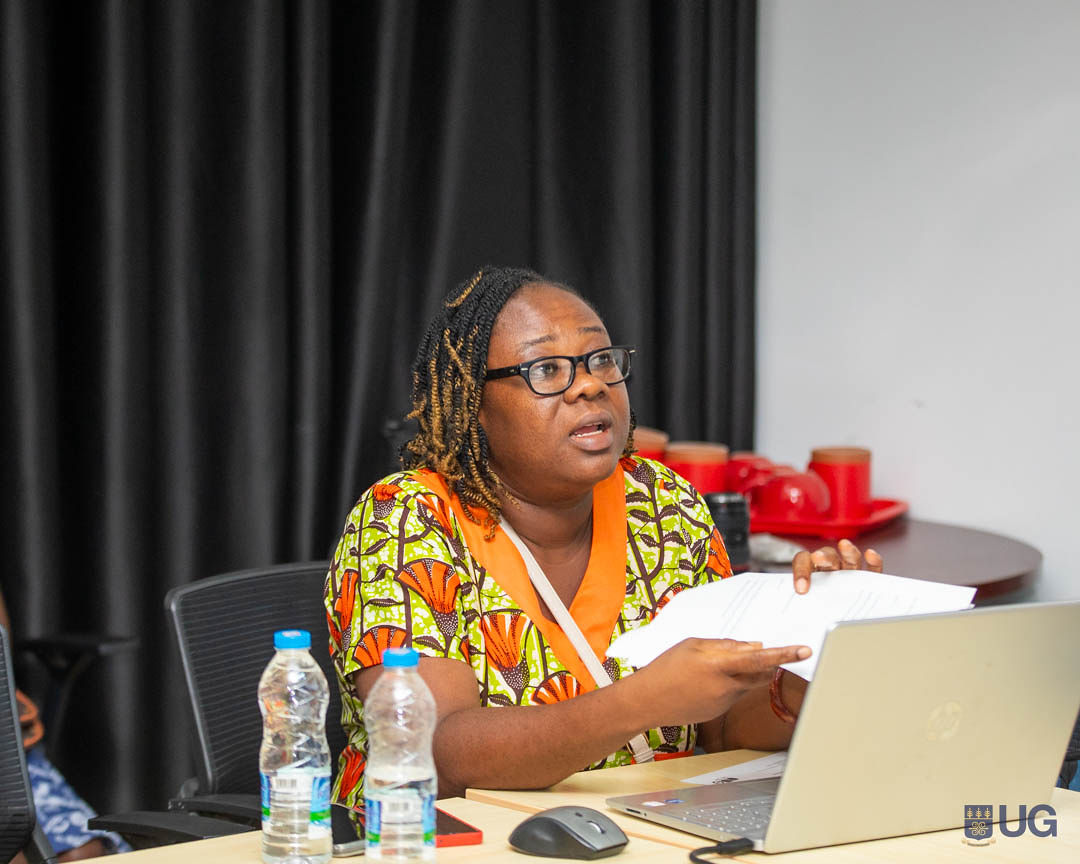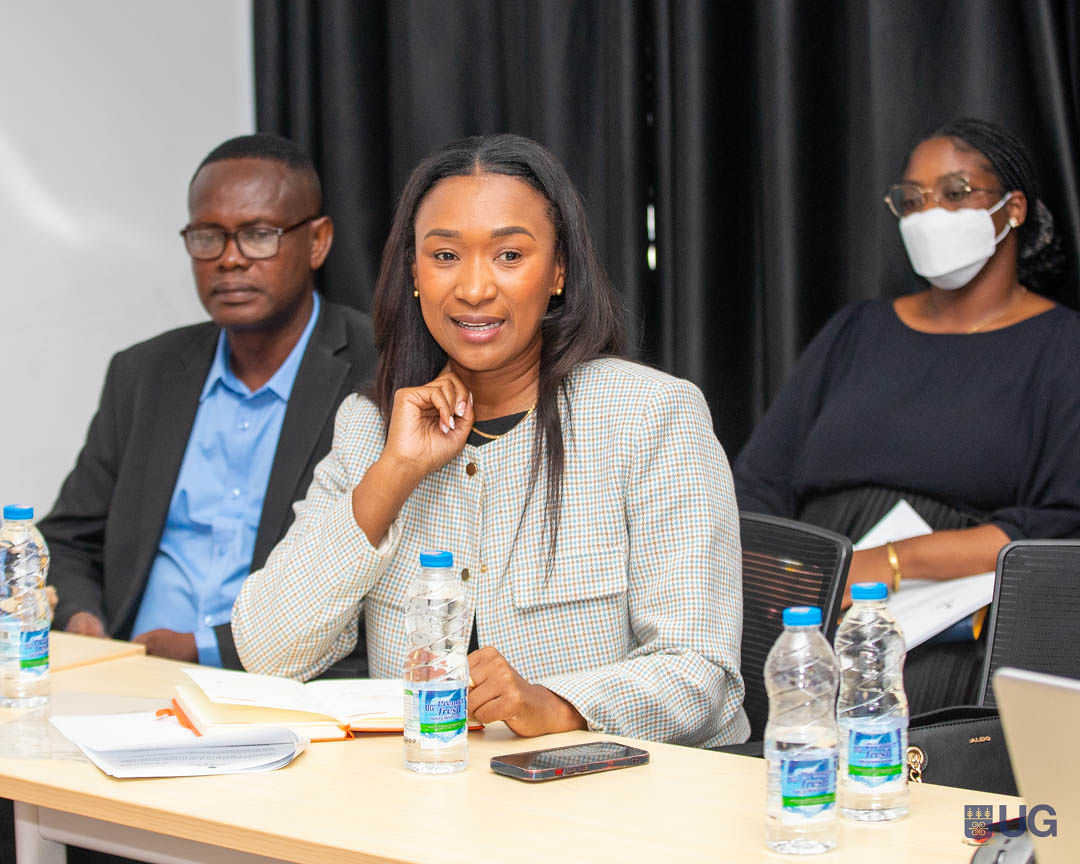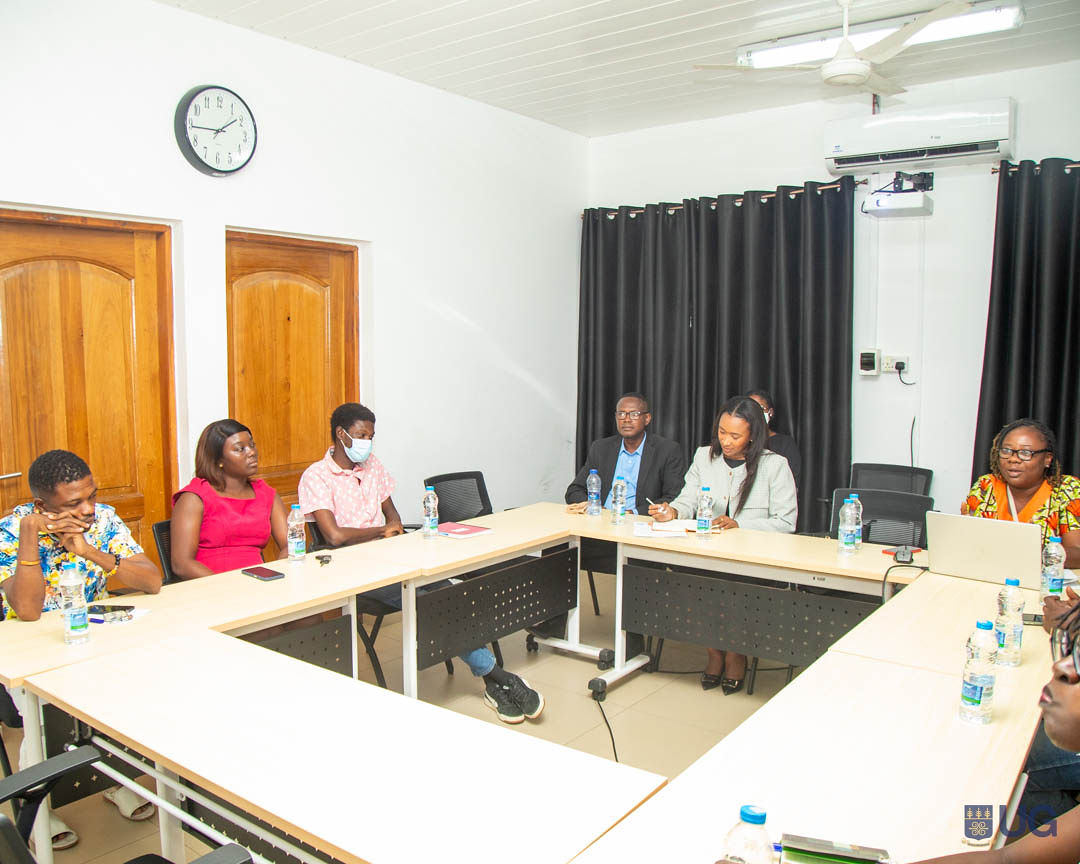Centre for Latin American Studies Launches Joint Research with Colombia on Illegal Mining

The Centre for Latin American Studies has launched a collaborative research project with Colombia, focusing on illegal mining.
The study will take a historical and interdisciplinary approach, engaging experts from Law, Economics and Sociology.
This comparative research will explore the causes and impacts of illegal mining in both Ghana and Colombia, with the goal of informing sustainable policies.
At a recent event to launch the research, Prof. Benedicta A. Lomotey, Director of the Centre, delivered an exploratory lecture examining the shared challenges and learning opportunities between Ghana and Colombia in the fight against illegal mining. She focused on a comparative analysis of Ghana’s Galamsey crisis and Colombia’s mining concerns, proposing a qualitative, case-study-based approach for the research.

Prof. Lomotey explained that while the two nations face unique socio-political circumstances, they share common drivers of illegal mining, such as poverty, unemployment, exclusion from land rights and weak governance systems. She also drew attention to the environmental toll in both countries, noting that pollution of rivers and deforestation have reached alarming levels.
Highlighting alternative solutions, she pointed to the critical role of grassroots and community-led initiatives, which often succeed where government interventions have not. She introduced the idea of granting legal entities to rivers, as practised in Colombia, as a potentially transformative environmental policy that Ghana could consider. “Both Ghana and Colombia face difficult trade-offs between economic needs and environmental preservation. But by learning from each other and working together, they can find sustainable solutions,” she explained.
Speaking with the Public Affairs Directorate Media Desk, Prof. Lomotey added that ‘by adopting an interdisciplinary approach, the initiative strengthens CLAS’s role as a hub for research that addresses shared socio-economic and environmental issues across regions. It also reflects CLAS’s mission to generate policy-relevant knowledge, as the study seeks sustainable solutions to illegal mining that can inform both government and community-level interventions.’
At the research project launch, Ms. Kelis Z. Moreno, Deputy Head of Missions at the Colombian Embassy in Ghana, emphasised that resolving the illegal gold mining crisis requires more than stricter regulations. She stressed the importance of restoring trust between communities and institutions and promoting long-term alternatives to informal mining.

Drawing from Colombia's experience, she highlighted the Oro Legal programme as a model for transitioning small-scale miners into the formal economy, offering them safer, more sustainable livelihoods while reducing environmental harm.
In contrast, she pointed to Ghana’s enforcement-heavy approach, particularly the Galamsey Taskforce, as facing significant challenges in halting widespread water contamination and land degradation.
“By advancing a comparative approach grounded in current data and multidimensional variables, this research not only supports stronger national policies but also contributes to global best practices in balancing gold extraction with environmental and human security,” Ms. Moreno added.
The seminar concluded with a Q&A session and group discussion where participants explored differences in mining practices between the two countries and discussed possible strategies for addressing the issue collaboratively.

This partnership marks a vital step toward shared solutions, promoting cross-country learning and stronger policies for responsible and sustainable mining.